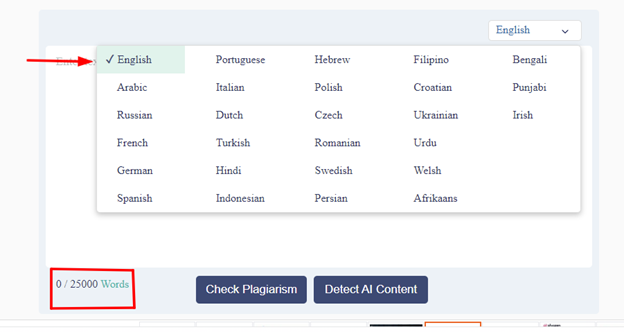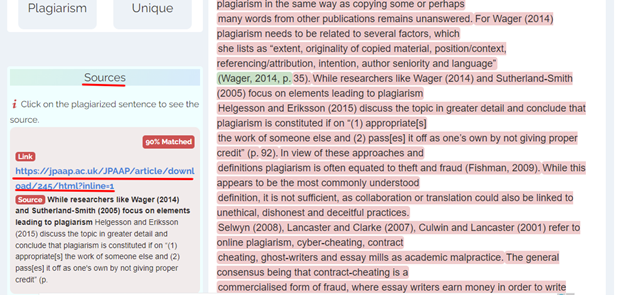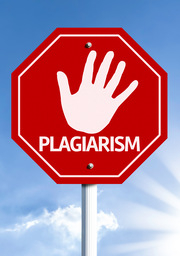The Role of Plagiarism Checkers in Fostering Academic Honesty among Students
Plagiarism, the act of using someone else’s work or ideas without proper attribution, poses a significant threat to academic integrity. The detrimental consequences of similarity extend beyond tarnished reputations; they undermine the very essence of intellectual growth and fairness in education.
Academic honesty cultivates critical thinking, originality, and a genuine understanding of the subject matter. It promotes ethical behavior, instills a sense of responsibility, and prepares students for a future where integrity and authenticity are valued.
Plagiarism checkers are powerful tools that aid in the detection and prevention of similarity in content by comparing submitted work against an extensive database of existing sources.
We will discuss today, how similarity index checkers empower students to review their work, ensure originality, and the role of plagiarized content checkers in fostering academic honesty among students.
Role of Plagiarism Checkers in Fostering Academic Honesty
- Plagiarism Detectors such as plagiarismchecker.ai enables efficient and objective detection of stolen content, helping to maintain the integrity of academic work and holding students accountable for their originality.
- By promoting a culture of originality and proper citation practices, stolen content detectors emphasize the importance of academic honesty and discourage unethical behavior.
- Plagiarized content detectors raise awareness among students about the seriousness of higher similarity index, educating them on the ethical and academic implications of improper use of sources.
- These tools encourage students to develop their research and critical thinking skills, as they learn to properly attribute and synthesize information from various sources in their unique way.
Understanding Plagiarism & Its Different Forms
Plagiarism is the act of using published work, ideas, or intellectual property without giving proper credit or acknowledgment. It encompasses various forms, including:
Verbatim Plagiarism
This happens when one directly copies and pastes another person’s work without attribution. For example:
Original Source: “The Earth’s atmosphere is composed of various gases, including nitrogen, oxygen, carbon dioxide, and trace amounts of other elements.”
Plagiarized Version: “The Earth’s atmosphere is made up of different gases, such as nitrogen, oxygen, carbon dioxide, and small amounts of other elements.”
Paraphrasing
It involves rephrasing other’s ideas without proper citation, as exampled below:
Original Source: “According to a recent study, regular exercise has numerous benefits for physical and mental health.”
Plagiarized Version: “A recent investigation revealed that routine physical activity offers multiple advantages for both physical and mental well-being.”
Self-Plagiarism
This occurs when an individual presents their own previously published work as new or original. For example:
Original Source: “The results showed that regular meditation practice has a positive impact on stress reduction and overall psychological well-being.”
Plagiarized Version: “In this research, I discovered that incorporating regular meditation into one’s routine can effectively alleviate stress and improve overall mental health.”
Each form of plagiarism undermines the principles of academic integrity and the importance of originality in scholarly pursuits.
Consequences of Plagiarism on Academic Progress & Integrity
Damage to personal and academic reputation:
Stolen content can tarnish the reputation of the individual involved, affecting their credibility as a scholar and potentially impacting future academic and professional opportunities.
Academic penalties:
Institutions take plagiarized content efforts seriously and impose disciplinary actions, ranging from failing grades on assignments or courses to more severe consequences such as academic probation, suspension, or even expulsion. These penalties serve as deterrents and reinforce the importance of upholding academic integrity.
Undermining the value of education:
Similar content in academic writing undermines the integrity of the educational system. It diminishes the value of genuine learning and erodes trust and fairness within the academic community.
Stifling personal growth and development:
Stolen content deprives students of the opportunity to develop essential skills such as critical thinking, research, and effective writing. It hinders their intellectual growth and diminishes the value of their academic achievements.
Devaluing the work of others:
Plagiarized content not only harms the plagiarist but also disrespects the original authors and their intellectual contributions. It disregards their efforts and diminishes the recognition they deserve for their work.
Undercutting the advancement of knowledge:
The stolen content of others impedes the progress of knowledge by promoting the circulation of unoriginal ideas. It hampers innovation, stifles creativity, and prevents the emergence of new insights and discoveries.
Impact on educational institutions:
The percentage of similarity index in a document reflects poorly on educational institutions, eroding their reputation and credibility. It undermines their mission to uphold rigorous academic standards and the pursuit of knowledge with integrity.
Legal and ethical implications:
In some cases, it can lead to legal consequences, especially if it involves copyright infringement. It raises ethical concerns regarding intellectual property rights and the fair attribution of ideas.
Plagiarism Checkers Online for Students
A plagiarism checker is an efficient and accurate similarity index checker tool available online. It is paid and accepts up to 10,000 words per attempt for checking plagiarism and features 25+ languages.

The user will get the %age of original and plagiarized content along with the sources form where the content was taken by clicking on the sentence to be checked. Moreover, you can get the plagiarism report in the form of PDF document by clicking on “Get Report” button.

Conclusion:
From the above discussion, it is concluded that “fostering academic honesty among students is vital for maintaining the integrity and credibility of the educational system.”
Plagiarism checkers play a significant role in promoting academic integrity by efficiently detecting instances of similarity in content, encouraging a culture of originality and proper citation practices, raising awareness about stolen content, and nurturing students’ research and critical thinking skills.
It is essential to recognize the value of these tools and continue their use and development to address the evolving challenges of academic dishonesty. However, adopting a holistic approach that encompasses education, prevention, and detection methods is equally important.
By combining efforts in educating students, implementing proactive measures, and utilizing plagiarism checkers, we can cultivate a community committed to academic honesty, integrity, and the pursuit of knowledge.





